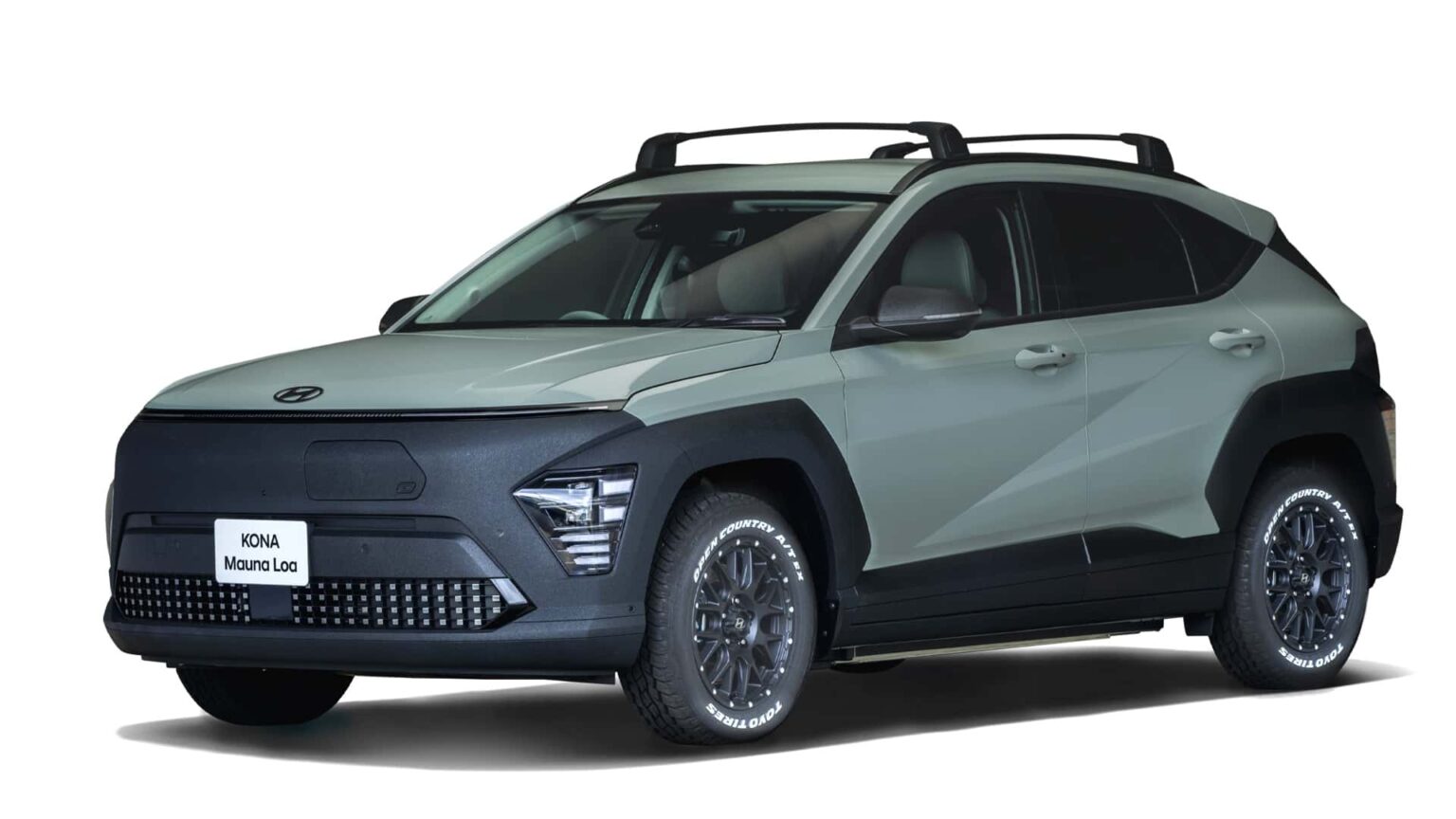Seemingly out of nowhere, there’s a limited-run special edition of the electric Kona in Japan. Hyundai calls it the “Mauna Loa” after the biggest active volcano in the world. Painted in Mirage Green, the small crossover has been turned into a pseudo-offroader with Toyo Open Country all-terrain tires.
The chunky rubber measures 205/65 R16 and is combined with matte black wheels supplied by Weds. For better off-road chops, Hyundai installs smaller wheels compared to the regular model’s 17-inch set with 215/60 R17 tires. We’re not entirely sure whether that was the intention but the new wheels seem to mimic bedlock wheels used by proper go-anywhere vehicles.
Addressing the elephant in the room, the bumpers and side skirts make the Mauna Loa look like a base model from the 1990s. While those cars had unpainted bumpers to keep the price low, the Kona’s are sprayed with scratch-resistant paint. That should make the body panels more durable when you’re off the beaten path in your electric Kona. Hyundai calls it a “unique uneven finish” with a textured look that has a “subdued shine.”
Rounding off the upgrades on the outside are mudguards on all four wheels, black weatherstripping, dark badges, and standard roof bars for extra practicality. Stepping inside, Hyundai installs easy-to-clean floor mats and a cargo mat made from rubber as well. Much like the body, the interior is also predominantly green but with neon yellow accents for a contrasting effect.
Although the Kona Mauna Loa caters to outdoorsy people, Hyundai insisted on covering the seats in leather upholstery. We’d reckon cloth would’ve made more sense since it’s easier to clean and more durable in time. Elsewhere, customers can get a few more accessories, including a folding chair and storage pockets that can be attached to the back of the front seats. Two differently sized cargo boxes are also available.
Hyundai is making only 30 units of the Kona Mauna Loa and is charging 4.95 million yen. At current exchange rates, that works out to about $32,500, making it about $2,800 more expensive than the electric Kona Voyage upon which it’s based. It has the bigger 64.8-kWh battery pack with enough juice for 336 miles (541 kilometers).
12 Photos
Hyundai
Read the full article here

